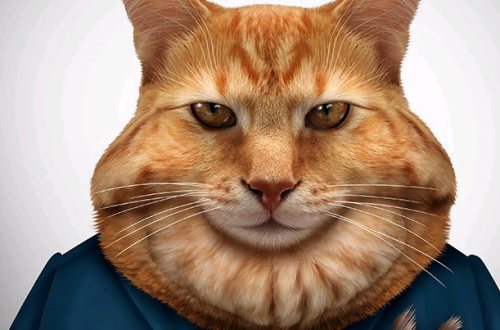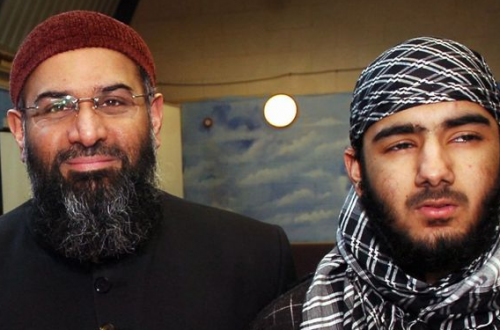Last week, the Guardian’s Divine Dispatches: A Religion Round Up was written, not by their Religious Affairs correspondent, Riazatt Butt, but by Nadiya Takolia. Takiolia appears generally to be writing for the Guardian, so I wonder if she has been given an internship.
Nadiya Takolia works for Engage. Engage (or “iEngage”) is an NGO which attacks Muslim liberals while defending hate preachers and Islamist political parties and institutions, and which attacks the police for arresting terrorist suspects.
Engage was set up, in part, to be the secretariat of an All Party Parliamentary Group on Islamophobia. It lost the APPG gig following a highly critical independent report by the sociologist Chris Allen, commissioned by the APPG itself.
Under normal circumstances, it would be absolutely unthinkable for the Guardian to accept a column from an employee of an organisation which attacks Muslim liberals. Still less would the Guardian ordinarily allow such a person to deputise for their Religious Affairs correspondent.
However, these are not normal circumstances. Because Engage is linked closely to Islamist politics – one of its founders is Mohammed Ali Harrath, of the Tunisian An Nadha party – different rules apply.
Unsurprisingly, the column leads with a link to Islamophobia Watch: a website run by former Workers Revolutionary Party activist, Bob Pitt: who similarly attacks Muslim liberals while defending hate preachers and Islamist political parties and institutions. The column also discusses polygamous marriages, which Takolia tells us:
“are legal but strictly regulated by Islamic law (for example, a man must get the permission of previous wives, must support them all financially and must treat them all equally)”
The Left, progressive politics in general, is a club. Membership of the club is determined, not so much by what you believe, but who will vouch for you. Because the Guardian has, institutionally, decided that Islamist politics are part of the great progressive Left tradition, it is natural that an employee of an Islamist institution which attacks Muslim liberals should be asked to edit its religion column. This may appear incongruous to you or me, but for such an appointment to raise eyebrows at the Guardian, it would have to conclude that Islamist politics is inimical to liberalism, and that Islamists oppose their values.
The nature of the Left’s alliances is what shapes its dynamics. Once it has made those partnerships, absolutely nothing will shake them. To abandon its alliances would mean that it was wrong to have made them in the first place. To criticise an ally’s conduct is implicitly to criticise others who still treat them as an ally. As a result, many of those with doubts about such alliances, working in progressive institutions, regarding themselves as part of the Left, will keep quiet about their doubts. Others will conclude that any criticism of their Islamist allies must be “Right wing” and probably also racist.
So, for example, when the true nature of CagePrisoners’ Salafi Jihadi politics became know, thanks to Gita Sahgal, Amnesty simply rejected all criticism, and carried on working jointly with the organisation. Gita Sahgal became a hate figure for part of the Left. Similarly, when Engage’s record of supporting hate preachers and attacking their Muslim opponents was uncovered, its supporters – Jack Straw, Stephen Timms, Simon Hughes and Sadiq Khan – rode to its rescue. It was really only following Chris Allen’s devastating report that they took a step back. However, you can be sure that, in time, they’ll return to their open support of the organisation. Just wait and see.
This is not an issue which can be won by argument. The problem is institutional in nature.
Hat tip: CifWatch
UPDATE
Alfie in the comments notes that Comment is Free has also recruited Ayesha Kazmi, of the Salafi Jihadi lobby group, CagePrisoners.
Here, Ayesha Kazmi reveals that the convicted Al Qaeda terrorist, Aafia Siddiqui, was a “big sister” to her:
My mother knew that I would be a barrel full of trouble when she smelled cigarette smoke on my clothes once when I was in seventh grade. From that point on, she was quite adamant to clandestinely place a Muslim “big sister” every step of the way in my life – particularly when I was a teenager.
One of the appointed big sisterly figures to me was beloved Aafia Siddiqui.
…
While the world continues to speculate what Aafia baji has been up to in all those years that she went missing, I will continue to keep alive my memories of me and her chasing those blue budgies around in circles and laughing together. Just like those birds wanted not be caught, caged and instead, fly free, I know for sure, so too does Aafia baji.
You can read the truth about Aafia Siddiqui here.


